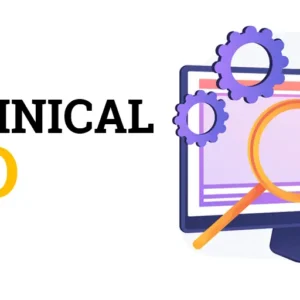Key Highlights
Website content writing is the cornerstone of successful online presence, helping businesses attract site visitors and build brand awareness.
Content marketing thrives on high-quality blog posts, web copy, and social media posts tailored to your target audience.
SEO writing maximizes search engine rankings through keyword research and strategic meta descriptions.
Beginner content writers need strong writing skills and an effective content strategy to produce actionable and engaging text.
Comprehensive knowledge of great content creation leads to impactful campaigns that retain site visitors and boost conversions.
Introduction
Website content is your digital handshake, the first step toward connecting with an audience. Whether you’re crafting blog posts, creating web pages, or focusing on SEO writing, your words shape perceptions and drive interactions. Content writing has become essential because it incorporates search engine optimization (SEO) best practices, enabling businesses and individuals to stand out in the crowded online ecosystem. Ready to learn how to master the process of professional website content writing? Let’s explore the fundamentals.
Understanding Website Content Writing
Website content writing involves creating impactful text that resonates with your audience while addressing their pain points. It’s more than just words—it’s about crafting web content that improves search engine rankings and establishes your authority.
Whether you’re a content writer for individuals or businesses, understanding its nuances is key to delivering text that informs, persuades, or entertains. Let’s uncover the basics of what website content writing entails and why every site needs it to thrive.
What is Website Content Writing?
Website content writing is the art of producing text specifically designed for digital platforms. From web pages to blog articles, every piece of content serves a purpose—informing, engaging, or converting visitors. Writers focus on creating valuable online writing that captivates their audience while aligning with business goals.
Effective website content isn’t just about filling the page with words; it’s about understanding web content dynamics. Consistent use of keywords, appropriate tone, and actionable information enable site visitors to connect and take action.
Online writing today extends beyond the basics. Modern website content writing leverages high-quality text combined with multimedia elements and strategies like SEO optimization. When done correctly, it becomes a tool for building brand awareness, driving traffic, and promoting credibility.
Why is Website Content Important for Businesses and Individuals?
Website content plays a crucial role in amplifying brand awareness. Businesses rely on thoughtful content marketing to position themselves as industry leaders and connect with their audience.
For businesses, quality web content drives site visitors by enhancing search engine rankings. Strategic writing, like SEO content writing, attracts new visitors while retaining loyal ones, ensuring steady growth.
Individuals also benefit by showcasing their skills and expertise. A personal blog or professional webpage can build credibility, establish thought leadership, and begin meaningful conversations with potential collaborators or clients. Great content writing ensures both groups stay relevant and ahead of the competition.
Essential Skills for Effective Website Content Writing
Successful content creation requires more than just typing words—it demands precision and strategy. Equipped with strong writing skills and knowledge of SEO basics, content writers can create impactful text that resonates with readers.
SEO writing is essential for improving search engine rankings, while clarity and adaptability in sentence structure facilitate effective communication. Combining these skills with audience-focused strategies allows for compelling content that captures and retains attention. Now, let’s take a closer look at these skills.
Writing Clearly and Concisely
First impressions matter, and your words must grab attention immediately. Clear and concise writing ensures your message is both understood and retained.
One of the most valuable writing tips is maintaining proper sentence structure. Break down complex ideas into manageable paragraphs and avoid information overload. Use precise word choice to communicate effectively without ambiguity.
Regarding web content, brevity combines powerfully with relevancy. A professional content writer ensures sentences are free of fluff, creating engaging copy that informs and persuades effortlessly.
Mastering SEO Basics
Understanding keyword research is fundamental for effective SEO writing. It’s the process of discovering what your target audience is searching for and shaping your content to meet those interests.
To maximize search engine rankings, integrate your keywords naturally throughout your writing. Meta descriptions, headings, and body text should all reflect key search terms without sounding forced.
SEO optimization also involves technical knowledge. Elements like alt text, backlinks, and content readability are necessary for visibility. With these basics mastered, you’ll unlock the full potential of web writing.
Adapting Tone and Voice for Different Audiences
A content writer must adapt their writing style based on who they’re addressing. Tone reflects your brand’s personality, while voice captures your connection with your target audience.
For professional readers, maintain an authoritative tone with straightforward language. On the other hand, a younger target audience may prefer a playful tone that feels relatable and engaging.
Remember, aligning writing style with audience expectations fosters trust and keeps readers returning for more. Tailoring your text ensures relevance and establishes a lasting bond.
Key Elements of High-Quality Website Content
High-quality content is non-negotiable for websites looking to outperform competitors. It involves developing a content strategy that prioritizes value, relevancy, and consistency.
Good content writing aligns multimedia, headlines, and SEO practices into a cohesive package. Combining these elements results in an experience that increases page views and retains site visitors. Now, let’s discuss how to incorporate these key components effectively.
Crafting Compelling Headlines
Headlines are the gateway to your content, making them more impactful. Using words with emotional marketing value grabs attention swiftly and increases page views.
Effective headlines are concise but create curiosity. Incorporate keywords for SEO while ensuring they intrigue without overwhelming.
For example, a blog post titled “5 Secrets to Writing Headlines That Convert” uses curiosity and action phrases, drawing readers in while providing solutions. Great headlines promise value, making them your first step toward engagement.
Structuring Engaging Introductions and Conclusions
Effective introductions spark interest within seconds. Highlight the benefits your content offers upfront, using best practices like bullet points to preview what readers will gain.
Conclusions are equally important. Summarize key insights, restating your main points while encouraging action. Whether it’s subscribing to updates or sharing your post, provide clear calls to action that lead readers forward.
A seamless introduction and conclusion create cohesion, amplifying the success of any piece of content.
Using Visuals and Multimedia to Enhance Text
Visuals and multimedia enhance text by creating more interactive and engaging content. Bullet points clarify its usage:
Videos add depth to explanations, illustrating complex ideas better.
Charts summarise data for easy interpretation.
Graphs and diagrams organise information visually.
Infographics quickly inform readers without overwhelming them.
Images make text visually appealing, retaining attention longer.
These elements transform great content into unforgettable user experiences, ensuring your website stands out.
Types of Website Content You Can Create
The versatility of content writing opens many opportunities. From web copy that captures visitors’ pain points to blog posts with expert analysis, options abound for every target audience.
Product descriptions or service pages also improve SEO rankings while inspiring confidence among new visitors. Diverse formats add depth to your website, making it engaging for all demographics. Let’s spotlight three common types of website writing.
Homepage and Landing Page Copy
Homepage and landing pages set the tone for your site, showcasing its core purpose. Writing website copy for these pages requires precision, balancing brand awareness and user intent.
Craft homepage copy that immediately captures attention by stating what you offer and why visitors should trust you. Landing pages must focus on pain points and provide tailored solutions.
Ultimately, persuasive yet concise text encourages site visitors to explore further, deepening engagement.
Blog Posts and Articles
Blog posts form the backbone of any content marketing strategy, offering opportunities for thought leadership and increasing web traffic. Focus on actionable content that solves problems effectively.
While articles provide in-depth exploration, ensuring both formats align with SEO goals is vital. Incorporate strategic keywords to align with search engine results, amplifying page views.
Great blog writers use storytelling and data-driven methods to make their articles both relatable and informative while fostering repeat visits.
Product Descriptions and Service Pages
Product descriptions go beyond features; they capture emotions and needs. Focus on highlighting benefits that resonate with your target audience while incorporating SEO content writing to boost search visibility.
Service pages are about showcasing unique selling points, aligned with keyword research efforts. Include trust-building elements like testimonials for credibility.
These pages allow businesses to provide clarity while addressing visitors’ pain points in the right way, leading to conversions.















